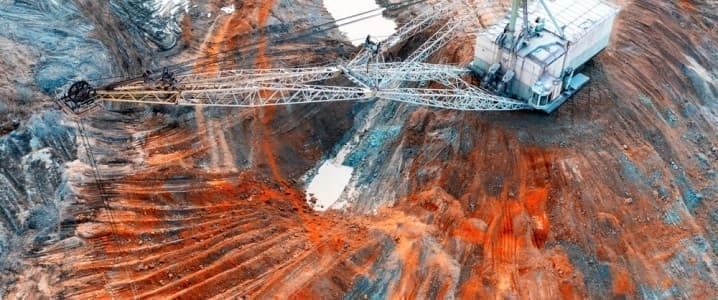- Chinese traders are actively circumventing Chinas ban on critical mineral exports to the U.S. by rerouting shipments through third countries such as Mexico and Thailand.
- Despite the ban, U.S. imports of antimony, gallium, and germanium are on track to equal or exceed pre-ban levels, often at higher prices, due to these re-routing methods and mislabeling of goods.
- The illicit trade continues due to significant profit incentives, even as Chinese authorities crack down on domestic lawbreakers and third-country traders face scrutiny.

Chinas 2024 ban on exports of critical minerals antimony, gallium and germanium to the U.S. sent prices soaring nearly 50% in a matter of days. It was a retaliatory move following Washington's crackdown on the countrys chip sector. But there are always loopholes, and new reports now reveal how Chinese traders are circumventing the ban by re-routing U.S. shipments through third countries.
According to U.S. customs data, the U.S. imported 3,834 metric tons of antimony from Mexico and Thailand in the first four months following the ban, more than almost the previous three years combined.
In fact, Mexico and Thailand now rank amongst the three largest importers of antimony from China, a big jump considering neither was previously featured in the Top 10 list just two years ago, and each has only a single antimony smelter, analysts told the Times of India.
Several US importers and industry experts confirm that shipments are proceeding under alternative labels and routing methods& mislabelled as other goods such as iron or art supplies before being sent through third countries, FastBull reported ."It's a pattern that we're seeing and that pattern is consistent," Ram Ben Tzion, CEO of Publican, told Reuters, adding that Chinese companies are "super creative in bypassing regulations.
Back in May, China's Commerce Ministry acknowledged that unscrupulous foreign traders have been colluding with domestic lawbreakers" to evade the countrys export restrictions, adding that this is now a matter of national security. However, U.S. manufacturers are hardly complaining, with imports of the three banned minerals on track in the current year to equal or even exceed levels before the ban, albeit at higher prices.
Unlike their Chinese peers, American buyers of banned Chinese minerals are taking advantage of a nice loophole since U.S. law does not expressly prohibit their purchase. Still, they have to contend with skittish Chinese logistics firms. Levi Parker, CEO of Gallant Metals, told Reuters he has been buying 200 kg of gallium per month from China, but cannot increase that to his desired volume of 500 kgs per month because big shipments are likely to draw scrutiny from Chinese authorities.
Also in the cross-hairs are traders in the third countries.
Thailand-based Thai Unipet Industries, a subsidiary of Chinese antimony producer Youngsun Chemicals, has reported doing brisk trade with U.S. buyers since the ban took effect in December 2024. Unipet shipped 3,366 tons of antimony to Texas-based Youngsun & Essen in the five months since the ban, nearly 30 times the amount the company shipped in the entire year prior to the ban, according to Reuters .
Whereas offenders generally face fines or bans on future exports, Beijing can sometimes classify some cases as smuggling, which carries a five-year jail term. Still, the promise of big profits is likely to keep the trade going, with prices of the three critical minerals at record highs.
Earlier in the year, a call between U.S. President Donald Trump and Australian Prime Minister Anthony Albanese sparked the concern of Beijing, a key importer of Australian minerals as well as a leading supplier of critical minerals to the U.S. Australia is a vital source of natural resources for China, providing 60% of the countrys iron ore imports.
For decades, Australia has been the upstream mineral supplier, whereas China has dominated the refining and processing of minerals for the global market. China has consistently been the largest buyer of Australian raw minerals, with Chinese investors like Tianqi and Ganfeng providing long-term capital to support and expand mining capacity in Australia. Australia is a major supplier of minerals used to make batteries for electric vehicles, with Chinas Tianqi Lithium holding a large stake in the lithium hydroxide plant in Kwinana, Perth. In this context, Australia depends on China, while Chinese processors also depend significantly on Australia.
On the other hand, the U.S. and the West have been struggling to lower their reliance on China for critical minerals. Beijing has been doing everything in its power to thwart attempts by Western governments at independence. Since 2006, Beijing has controlled its supply of rare earths through the quota system.
In 2023, China issued three batches of rare earth output quotas, the first time it issued three quotas in a single year since it started the quota system, according to Reuters . The total quota for 2023 clocked in at a record high of 255,000 tons, good for a scorching 21.4% Y/Y increase. Beijing has also significantly tightened rules guiding exports of several critical metals and minerals, including a ban on the export of technology to make rare earth magnets, escalating an earlier ban on export of technology to extract and separate critical materials. China's commerce ministry sought public opinion on a potential ban on export of technology to prepare neodymium-iron-boron magnets, samarium-cobalt magnets and cerium magnets ostensibly to protect national security and public interest.
By Alex Kimani for Oilprice.com
More Top Reads From Oilprice.com:




